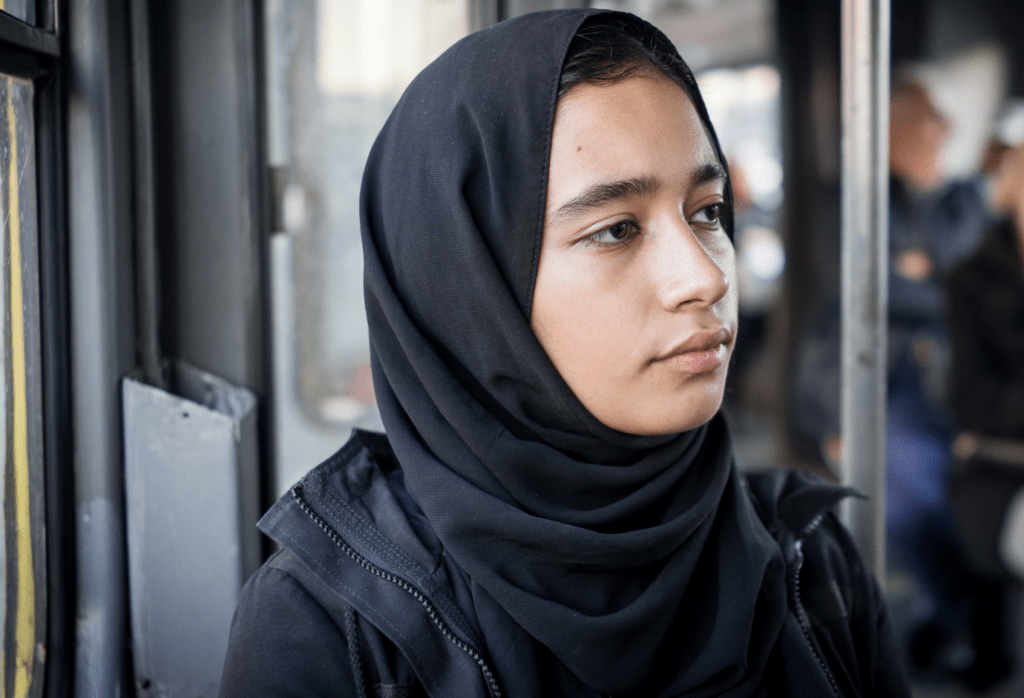In India, an app called Bulli Bai– a derogatory Hindi phrase for ‘Muslim women’— displays over 100 Muslim women, allowing users to bid for them in a fake auction.
The images of the women, ranging from lawyers to activists, are posted without their consent with the aim to “sexually harass, disgrace, humiliate and hate on women for speaking out against the government,” according to 27-year-old journalist Quratulain Rehbar, who is one of the women listed.
“It took me at least two to three hours to process,” she told NBC News.
After discovering that her picture had been included in the app, Rehbar removed her email from Twitter and deleted her Instagram account.
She told NBC News that despite the messages of support she has received, she has also got unwelcome messages from men.
Bulli Bai is sadly not the first app of its sort.
Last year, an app called Sulli Deals — a derogatory term for Muslim women used by right-wing Hindu nationalists went live, listing hundreds of Muslim women for “auction” with their photographs posted without their permission.
The app was also created with the aim of humiliating the women who appeared on them, rather than promote any actual sale.
Both Sulli Deals and Bulli Bai were created by a Microsoft owned American coding platform called GitHub, which developers use to build and host software.
On January 5, GitHub released a statement, saying it had “longstanding policies against content and conduct involving harassment, discrimination, and inciting violence.”
The company also said it had “suspended a user account following the investigation of reports of such activity, all of which violate our policies.”
Journalist Quratulain Rehbar said she had initially sought to report on Bulli Bai as a journalist, only to make the shocking discovery of her own image on the app.
Other prominent and outspoken women, including 26-year old lawyer and critic of Indian Prime Minister Narendra Modi’s right-wing Bharatiya Janata Party, Fatima Zohra Khan, have also had their pictures posted on the apps.
“I don’t trust the establishment to give us justice,” Khan told NBC News.
Twenty-three year old journalist Ismat Ara was also targeted by Bulli Bai. She told NBC News that the apps are a “conspiracy against Muslim women.”
“[There has been] a growing trend of hate crimes against Muslims, especially in the past few years,” she said.
“If the culprits get away with it, then there is no stopping this. Then it is not just Muslim women, but every woman in the country who can be targeted.”
The deputy commissioner of Mumbai’s cybercrime unit, Rashmi Karandikar has since announced the arrest of four men in connection with the app — Shweta Singh, 18; Mayank Rawat, 21; Vishal Kumar, 21, and Neeraj Bishnoi, who Delhi police called the “mastermind and creator” of Bulli Bai.
In India, with a population of more than 1.4 billion, online harassment is a particularly gender-based crime, with women and girls disproportionately affected.
In 2020, Amnesty International India conducted a study of female politicians on Twitter, revealing that Muslim women and women from outside the Bharatiya Janata Party were targeted at a greater frequency.
The data from “Troll Patrol India: Exposing Online Abuse Faced by Women Politicians in India,” reviewed thousands of tweets sent to 95 women politicians and found that 13.8 percent of the tweets were either “problematic” or “abusive.”
It also revealed that Muslim women politicians received 94.1 percent more ethnic or religious slurs than women politicians from other religions.
Atishi Singh, an educator, political activist and member of the Aam Aadmi Party said “It is not the role of each woman to individually ensure her safety in public space.”
“For example, if a woman steps out in public transport, it is the government’s role to ensure that they are safe there,” she said.
“Similarly, if there is a woman who is accessing social media on Twitter, it is the responsibility of the platform to ensure that it is a safe and secure space for women”.
The app has since been taken down.


